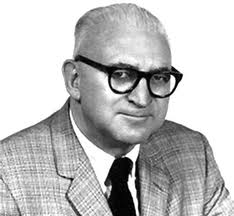As their weapon of choice against the Christ Myth hypothesis (“mythicism”), theologians, religion and Biblical scholars appear from where I stand to regularly deploy the instruments of propaganda. The motivations appear to me to be to maintain
- their status and reputation in a society infested with critical and anti-establishment influences, and
- their control over the terms of religious debates, dictating what are legitimate topics for review and what are not.
I use the term “propaganda” because it’s yet another valid way of explaining what is happening. Simpler expressions are “labeling” and “framing the debate”. Adding the concept of “propaganda” to the list might help us understand more clearly what is actually happening in these “discussions”.

To me the word “propaganda” stands for the opposite of true education, democratic or honest intellectual engagement and dialogue. Here’s a description of “what propaganda is” from some passages from the classic article “The Theory of Political Propaganda” by Harold Lasswell and first published (as far as I am aware in 1927) in the American Political Science Review:
Propaganda is the management of collective attitudes by the manipulation of significant symbols . . . Collective attitudes are amenable to many modes of alteration . . . But their arrangement and rearrangement occurs principally under the impetus of significant symbols; and the techniques of using significant symbols for this purpose is propaganda. . . . [As opposed to education] propaganda to the creation of valuational dispositions or attitudes. [What I would call honest dialogue] implies the search for the solution of a besetting problem with no desire to prejudice a particular solution in advance. The propagandist is very much concerned about how a specific solution is to be evoked and “put over.” And though the most subtle propaganda closely resembles disinterested deliberation, there is no difficulty in distinguishing the extremes. (my bolding)
Propaganda, I suggest, is the primary weapon used by the academy of biblical scholars and theologians against the Christ Myth theory. I have encountered very few genuine efforts of academics to “educate” the public (that is, “educate” as opposed to sway them by “propaganda”, given that “propaganda” is a process akin to “indoctrination”) or even to “educate” their peers of the deficiencies in any one of the “mythicist” cases.
One of the key characteristics of propaganda is that it manipulates symbols with the intent of bringing about social control. The symbols must have major significance for the audience, significant enough for them to hold real power over tan audience’s emotional reactions — “ideally, symbols of the Sacred and the Satanic.” (Alex Carey, Taking the Risk Out of Democracy, p. 12)
Understand the power of symbols.
Symbols are related to the psychological phenomenon of the stereotype. A stereotype is a seeming value judgment, acquired by belonging to a group, without any intellectual labor. . . The stereotype arises from the feelings one has for one’s group, or against the “out-group.” . . . In propaganda, existing stereotypes are awakened by symbols. (Jacques Ellul, Propaganda: The Formation of Men’s Attitudes, p. 163)
Probably the most used symbol in the propaganda war against mythicism is “The Scholar”. This symbol has siblings: “peer review”, “published in a reputable/academic journal”, “PhD”, “scholarly training”, “skilled in relevant languages”, to identify some.
Now I know some people will jump on that above sentence and accuse me of suggesting that “scholarly training” and being “skilled in biblical languages” are nothing more than worthless empty symbols. And such an effort will itself be demonstrating how propaganda works. By ignoring nuance they will be reinforcing the power of the symbol itself and the mechanics of propaganda. They will be reaffirming that “The Scholar” is sensible, wise, naturally right, while the critic who is associated with the enemy, “mythicism”, is vacuous, unavoidably silly, dumb and risible.
Recall the Sacred and the Satanic. Continue reading “The Propaganda War Against Mythicism”
